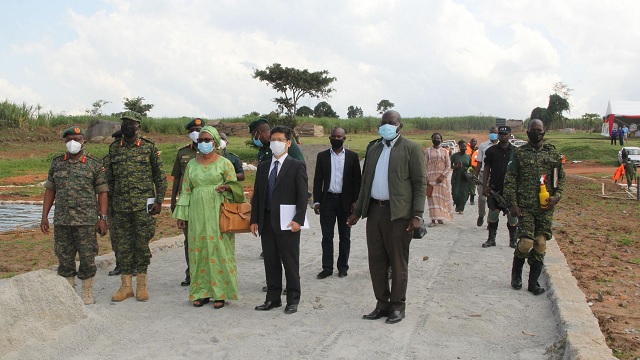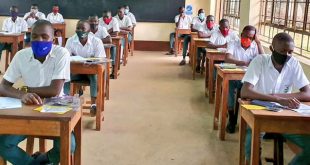
Kampala, Uganda | THE INDEPENDENT | The Directorate of Immigration Control is prioritizing maritime training as a measure to improve the capacity of immigration officials to fight migration-related crimes in the country.
Geoffrey Kambere, the Commissioner for Immigration Control says that because Uganda shares water bodies with some neighbors who are victims of instabilities, its nationals are often subjected to attacks, and sometimes kidnapped and trafficked to the neighboring countries with little or no help at all.
He cited numerous events on Lake Albert where militias from the Democratic Republic of Congo have often taken advantage of the porous border and the shared water body to kidnap fishermen from Ugandan landing sites, and only release them after paying a ransom. Kambere was speaking at the end of a 10-week training in marine rescue operations of suspected human trafficking victims at the Itokolo military marine base in Mayuge district.
Eleven immigration officials, among them 10 men and one woman participated in the training which was officially concluded on Friday. They were trained by the Uganda Peoples Defense Forces-UPDF Marine Brigade in basic swimming skills, survival and floating skills, maritime law, small boat handling skills, maritime operations and navigation, trouble shooting, security intelligence and boat driving competences.
The training is part of the activities for a project dubbed, “reducing transnational security threats while increasing border security and regular immigration in Uganda.” It is implemented through a tripartite partnership between the International Organization for Migration-IOM, the Embassy of Japan and Directorate of Citizenship and Immigration Control-DCIC.
Loyce Amanio, a trainee says that exposure to such training empowers officials to effectively avert security threats orchestrated by suspected criminals along with the border points since they can operate alongside a marine skilled workforce.
Odette Bolly, the IOM programme manager who represented the IOM Chief of mission says that the project is also aimed at promoting other migration capabilities within the country, which comprise of reinforcing operational capacity on Lake Albert with patrol vehicles and through capacity building of border officials. Secondly, they also aim at refining the visa policy, work permit and citizenship guidelines.
The Deputy Ambassador of Japan to Uganda, Mizumoto Horii says that the funds supporting this training are part of the USD 375,000, which they channeled through IOM with an aim of strengthening border management and mitigate the risk of terrorism from land and maritime borders.
Meanwhile, UPDF’s joint chief of staff, Joseph Musanyufu says that whereas the role of guarding Uganda’s borders is majorly their mandate, the force is committed to skilling other sister agencies with the much needed capabilities to fight crime across all borders.
*****
URN
 The Independent Uganda: You get the Truth we Pay the Price
The Independent Uganda: You get the Truth we Pay the Price

